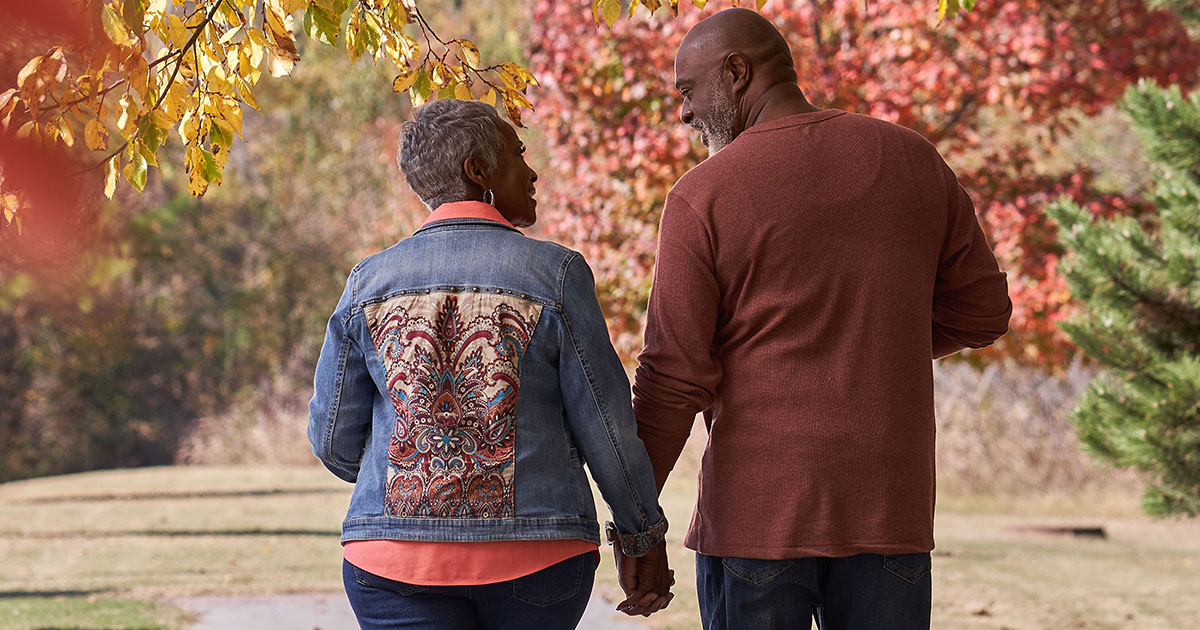
Unrealistic images and messages of the ideal female body have long contributed to women’s feelings of inadequacy about their bodies. Concerns run the gamut, from the size of thighs and breasts to the length and shape of legs, leaving many women believing they don’t meet society’s standards of beauty.
“I’ve yet to meet a woman who doesn’t engage in self-defeating internal conversation about her body, which will never serve her well,” says Traci Owen, RN, BSN, CSC, SE, Oncology Sexual Health Specialist at Cancer Treatment Centers of America® (CTCA), Phoenix and Atlanta.
Factor in a breast cancer diagnosis, a lumpectomy, mastectomy, with or without breast reconstruction, and those beliefs may be compounded exponentially, says Owen, who helps breast cancer patients navigate their intimate relationships before, during and after treatment. “Sensation within the breast is often altered or lost following surgery and will leave behind scars as a reminder. Breasts carry many mixed social messages about a woman’s worth and beauty.” Owen says.
There are a host of reasons, both physical and psychological, for why and how women’s feelings about sex and intimacy may change following a cancer diagnosis and treatment, she explains.
Physical and emotional changes
It’s important for partners of breast cancer patients to understand that, in addition to coping with the physical changes to their breasts and body, patients also grapple with a major emotional component.
“During treatment, a woman's breasts are touched by a lot of medical professionals—the surgeon, plastic surgeon, radiation team, medical oncologist, and the physical therapy team,” says Owen. “Suddenly what is typically a private and sensual part of the body becomes a clinical body part, and there can be trauma attached to that exposure. As healthcare professionals, we need to be aware of the vulnerability many of our patients are feeling in these physical exposures of clinical care.
“Early in the woman’s treatment I want to initiate a conversation about breast touch, what it has meant in the past, what it means in the moment, and ask her if it is mentally and physically acceptable for her partner to touch the breasts in a sensual way at this time.” she says. “For many women during their time on active treatment, they are not connecting their breasts to thoughts of physical intimacy and may not want their partner to touch their chest. I find it helps for the partner to have some perspective about why sensual touch may be a struggle.”
If the woman decides that the breasts are a no-fly zone, Owen suggests the woman have a gentle conversation with her partner about her feelings and consider wearing a camisole to cover her breasts. The cami can serve as a reminder to her partner not to touch that area, while also providing the woman with “a sense of a protective shield.”
Owen says she revisits this conversation with the couple through-out the woman’s treatment journey. “Often during the survivorship recovery, the woman begins to process some of these emotions and will be ready to transition welcoming sensual touch of the breasts again,” she says.
Sex and hormone-positive breast cancer
Hormonal function is often upended for women with hormone-positive breast cancers, creating yet another obstacle for intimacy. If a woman with hormone-positive breast cancer still has routine periods, the cancer treatment may put her into menopause.
During regular menopause, a woman’s body transitions over a period of years. But for these patients, menopause often comes on abruptly, resulting in a rough transition, both physically and emotionally.
A natural menopause is a normal transition that typically occurs over the course of 3-7 years. But for women receiving treatment for breast cancer, menopause often occurs much more abruptly, resulting in a more intense experience, both physically and emotionally. “The physical transition for women will be impacted by the method of treatment and often includes changes in sexual desire, intense hot flashes, weight gain, fatigue, and hair thinning or loss.” Owen says.
The female urogenital system—organs of the reproductive and urinary systems—is also fed by estrogen, so women with hormone-positive breast cancer may develop vaginal dryness, itching and irritation. Each of these issues may make sex uncomfortable, even painful. The loss of estrogen may thin vaginal tissue, reduce blood flow to the pelvic region and, as a result, shrink the vagina. “If sex hurts, it doesn’t take long for our protective brains to shut down desire for sexuality,” she says.
Owen recommends routine use of a vaginal moisturizer, which is not the same as a lubricant, to help bring relief from itching, burning or irritation.
Many menopausal women face other compounding issues in the bedroom. “It tends to take menopausal women longer to feel sexual arousal in the body,” Owen says. “If we have bad habits of rushing through sex or not allowing enough time for the brain to engage the bodies sexual response system, then sex may not be as physically or emotionally pleasurable for the woman.”
Owen urges couples to recognize the need to adapt to changes that occur in their bodies as they get older. “Most people hold on to ideals of sex from their 20s, but as the body ages, those ideals don’t serve us very well. It’s important to figure out where our bodies are at this juncture of life and negotiate intimacy, and renegotiate as needed.”
Owen offers these tips to help manage sexual issues after a cancer diagnosis:
- Communicate with your partner about fly zones and no-fly zones when it comes to areas you’re comfortable being touched.
- If sensual touch of breasts are not desired, wear a top to cover that area to remind your partner it’s off limits.
- Use an over-the-counter vaginal moisturizer to keep the vulvovaginal tissues from becoming overly dry.
- Use a lubricant during sex.
- Talk with your medical provider and your partner about any issues you may be experiencing.


